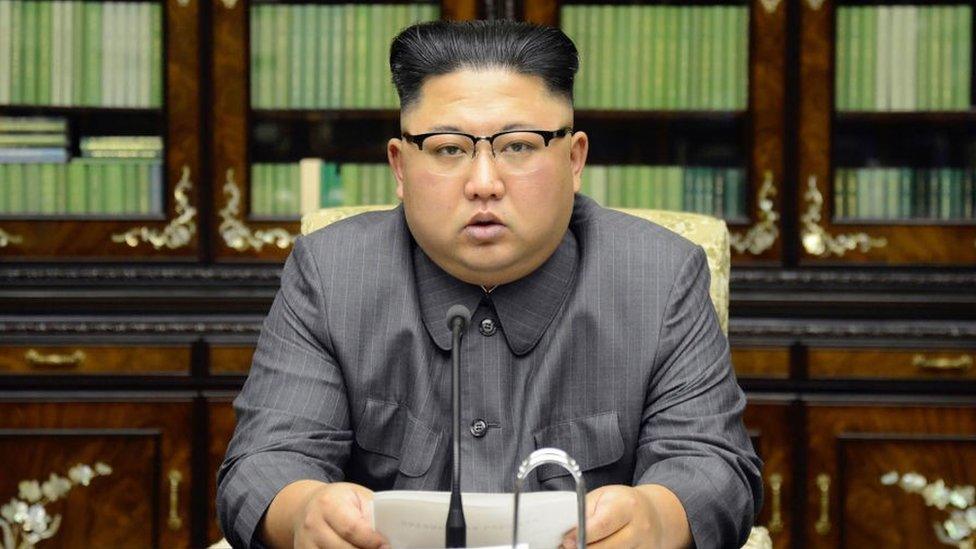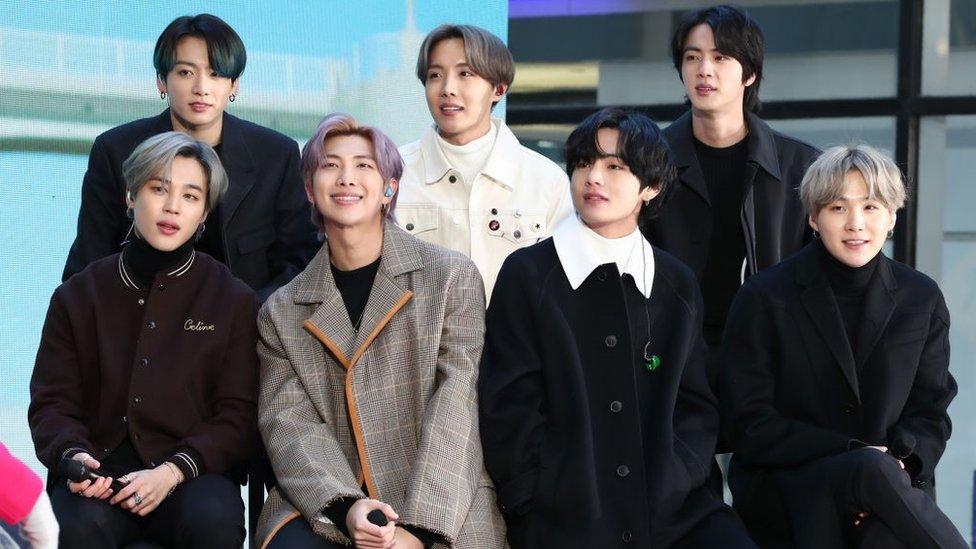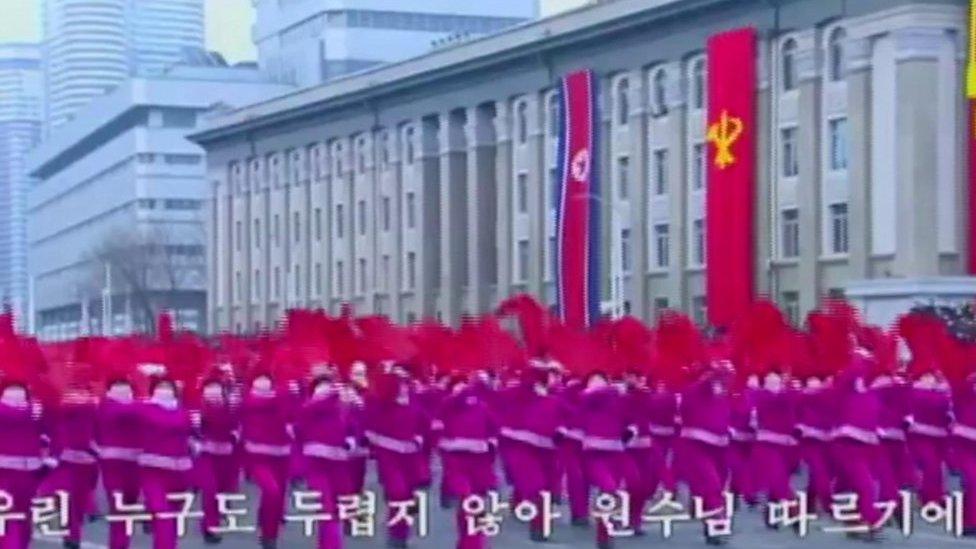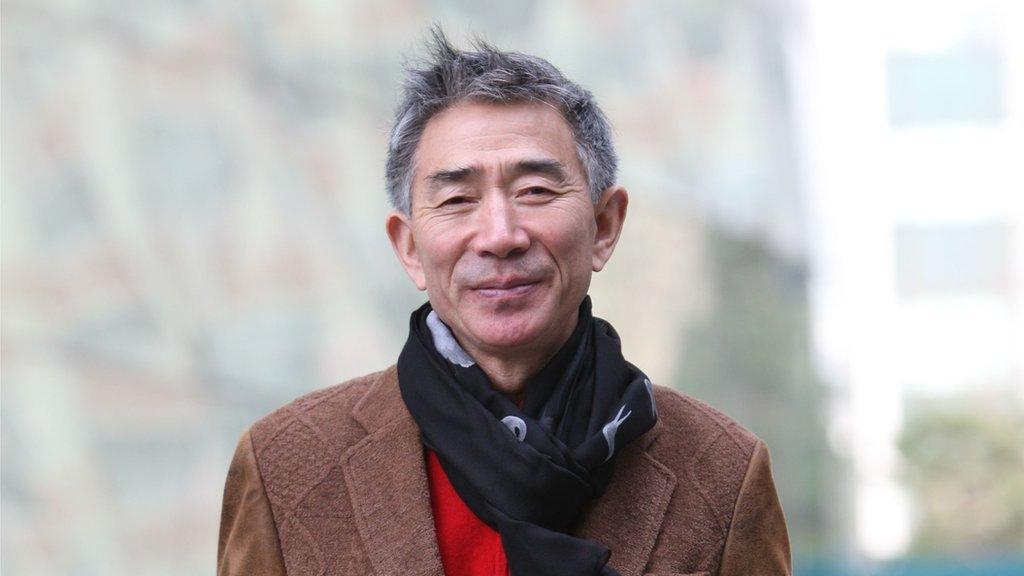North Korea warns young people against using slang from the South
- Published

No South Korean hairstyles wanted here, says Kim Jong-un
North Korean state media has urged its young people against using slang from South Korea and told them to speak North Korea's standard language.
There were also fresh warnings in North Korea's official newspaper against adopting the fashions, hairstyles and music of South Korea.
It is part of a sweeping new law which seeks to stamp out any kind of foreign influence, with harsh penalties.
Those found in breach of the law can face jail or even execution.
Rodong Sinmun newspaper warned millennials of the dangers of following South Korean pop culture.
"The ideological and cultural penetration under the colourful coloured signboard of the bourgeoisie is even more dangerous than enemies who are taking guns," the article read.
It stressed that Korean based on the Pyongyang dialect is superior, and that young people should use it correctly.
The North has recently sought to stamp out South Korean slang, for example a woman calling her husband "oppa" - which means "older brother" but is often used to refer to a boyfriend.

Kim Jong-Un has labelled K-pop a "vicious cancer" (pictured: BTS)
Foreign influence is seen as a threat to North Korea's communist regime, and it's Supreme Leader, Kim Jong-un's grip on power.
He recently labelled K-pop a "vicious cancer" that corrupts the youth of North Korea, according to the New York Times.
Anyone caught with large amounts of media from South Korea, the United States or Japan now faces the death penalty. Those caught watching it face prison camp for 15 years.
But despite the risks, foreign influence continues to seep into the North, and highly sophisticated smuggling rings to bring in banned media reportedly continue to operate.
Some North Korean defectors have said that watching South Korean dramas played a part in their decision to escape.
Yang Moo-jin, a professor at the University of North Korean Studies, told the Korea Herald, external that Kim, who was educated in Switzerland, "is well aware that K-pop or Western culture could easily permeate into the younger generation and have a negative impact on its socialist system".
"He knows that these cultural aspects could impose a burden on the system. So by stamping them out, Kim is trying to prevent further troubles in the future."
A defector tells the BBC about TV choices in North Korea.
Related topics
- Published7 June 2021

- Published7 June 2021

- Published21 March 2021
